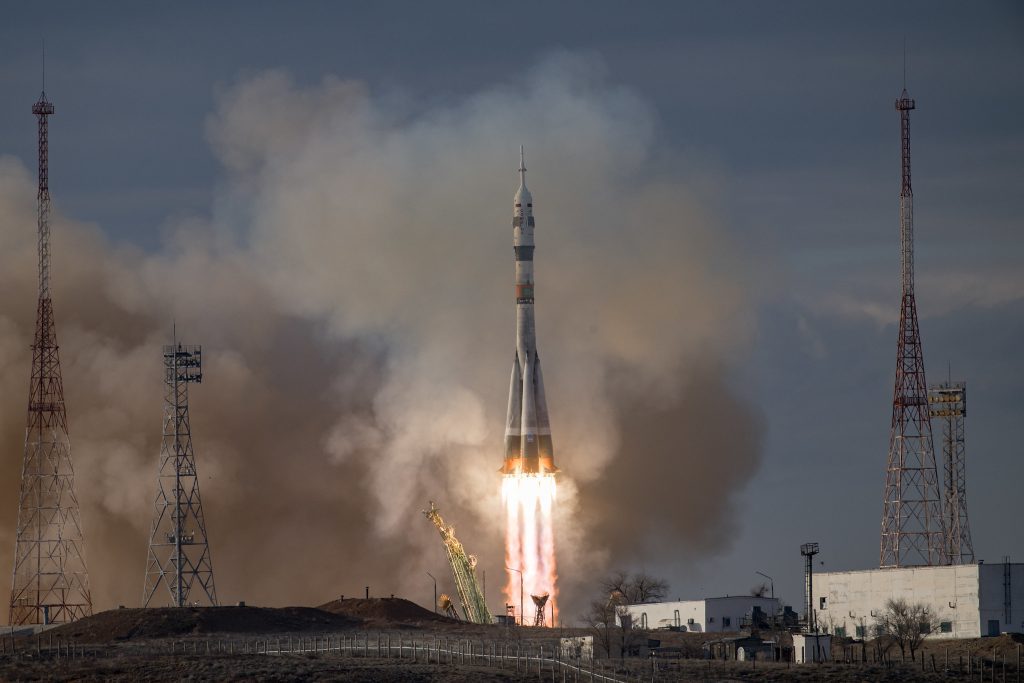A Soyuz spacecraft is on its way to the International Space Station, two days after a rare last-minute launch delay.
A Soyuz-2.1a rocket took off from the Baikonur Cosmodrome at 8:36 a.m. Eastern on March 23. It put the Soyuz MS-25 spacecraft into orbit around nine minutes later.
Soyuz MS-25 is under the command of Roscosmos cosmonaut Oleg Novitskiy with NASA astronaut Tracy C. Dyson and Marina Vasilevskaya, a Belarusian spaceflight participant, also aboard. The spacecraft is set to dock with the station’s Prichal module at 11:09 a.m. Eastern on March 25.
The launch was planned for March 21, but the countdown was stopped just 20 seconds before liftoff. Roscosmos stated several hours later that the launch was called off due to a low voltage reading in the launch vehicle. There had been no record of a delay so late in the countdown of a crewed Soyuz launch before this incident.
During a briefing on March 22 regarding the upcoming CST-100 Starliner crewed test flight to the station, Dana Weigel, NASA ISS deputy program manager, mentioned that at that time Roscosmos was still working to solve the issue, but Roscosmos later announced that the launch had been rescheduled for the next day.
NASA spokesman Rob Navias said in NASA TV coverage of the second launch attempt that batteries were swapped and tested in the Soyuz rocket’s first stage after the delay, allowing the launch to continue.
The two-day launch delay will lead to a four-day delay in the crew's arrival at the station. The original launch was planned to enable the Soyuz to reach the station quickly, arriving about three hours after launch. That path is not available on this launch attempt, so the crew will take a more usual two-day approach to the station.
Once docked to the station, Novitskiy and Vasilevskaya will stay for 12 days, returning in the Soyuz MS-24 spacecraft currently there with NASA astronaut Loral O’Hara, who launched to the station in that spacecraft in September along with Russian cosmonauts Oleg Kononenko and Nikolai Chub. That departure is planned for April 6. Kononenko and Chub will stay on the station for an additional six months, returning in Soyuz MS-25 with Dyson.
The Soyuz MS-25 launch happened a little over an hour after a Dragon cargo spacecraft, carrying the CRS-30 commercial cargo mission, docked with the station. That docking, with the top port of the Harmony module, occurred at 7:19 a.m. Eastern, about 10 minutes earlier than scheduled. The spacecraft lifted off on March 21 on a Falcon 9 and is bringing more than 2,800 kilograms of supplies, experiments, and hardware to the station.









